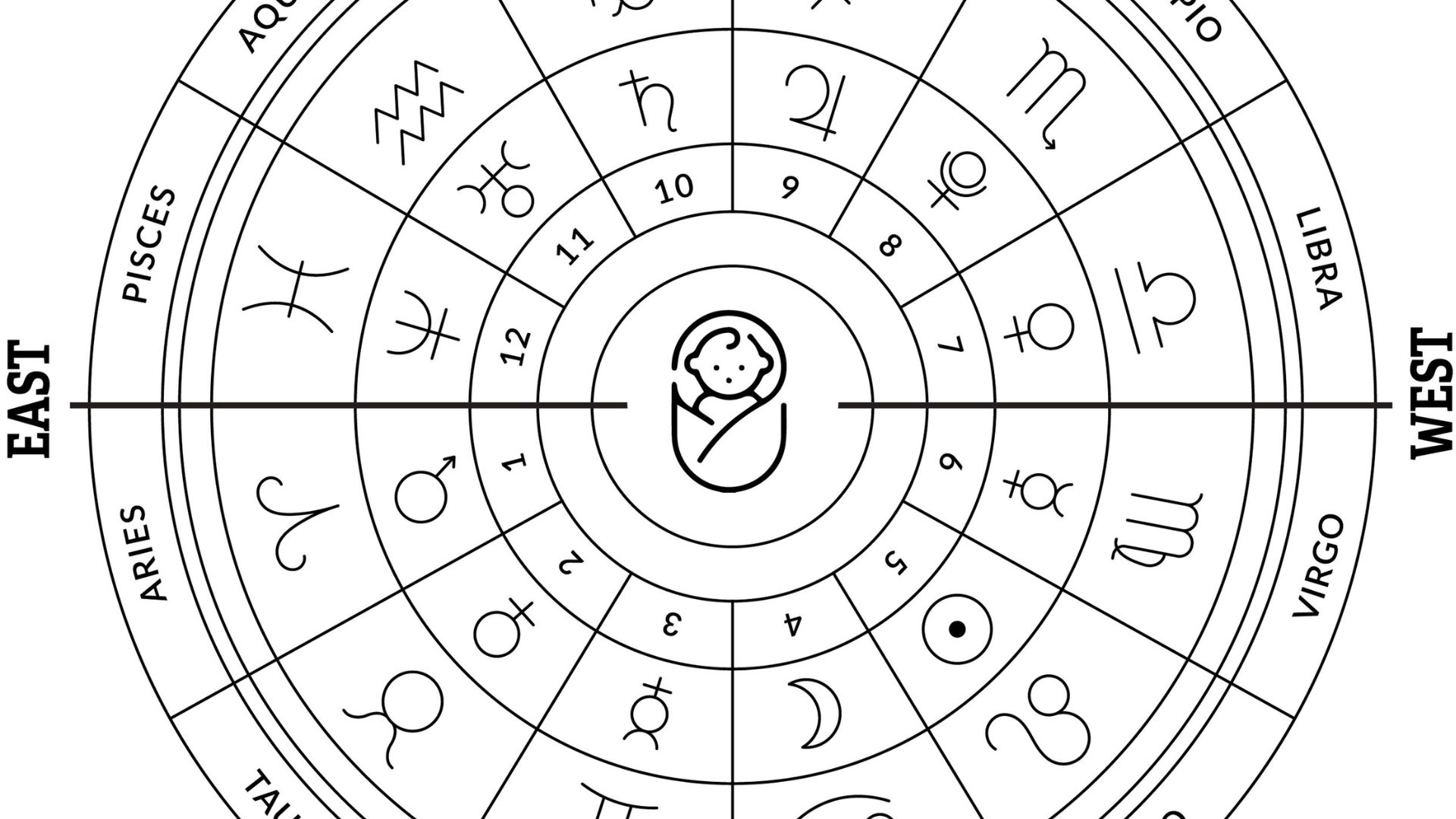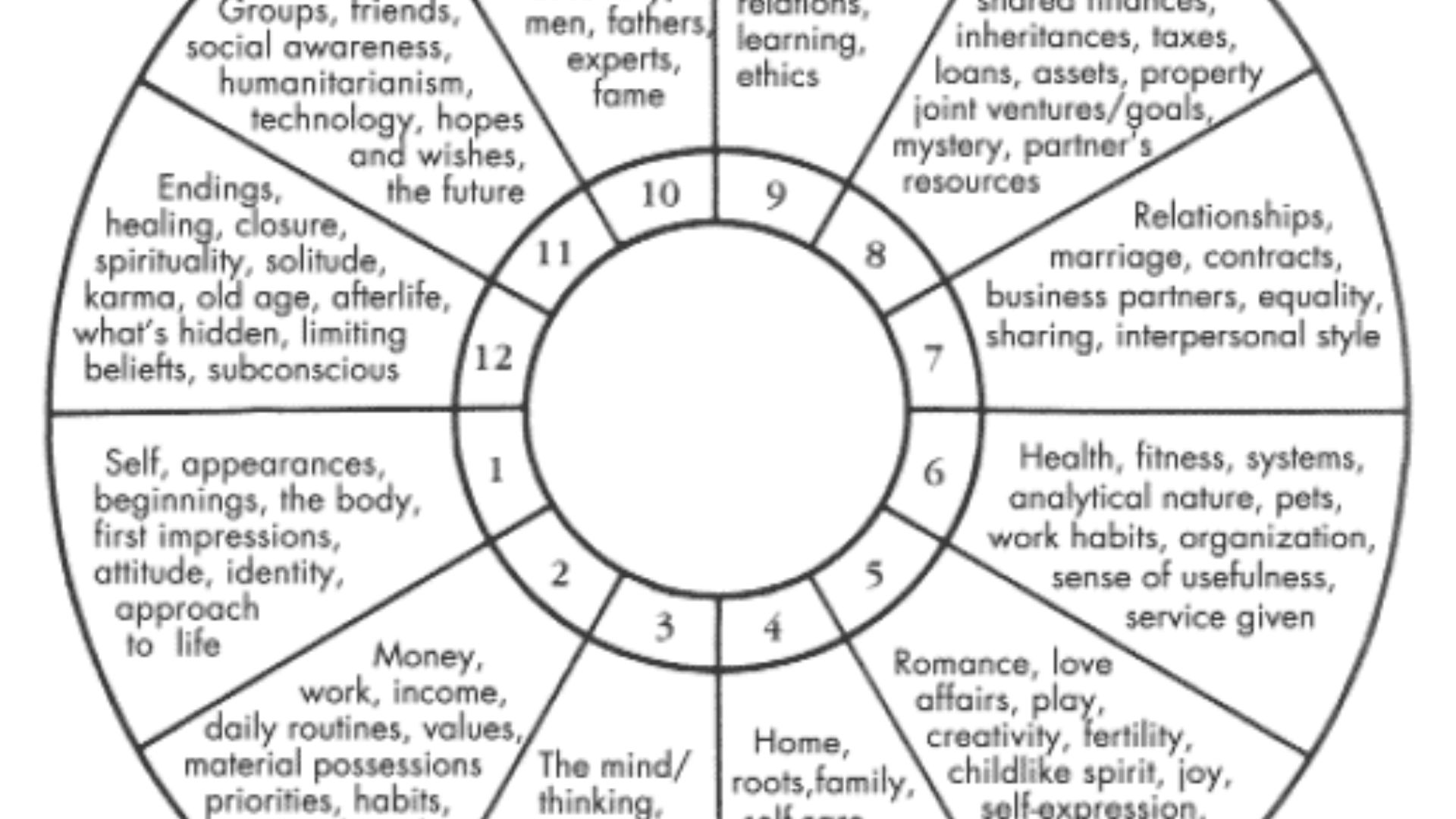Astrological Houses - How Transits Affect Different Areas Of A Person's Life
Astrology is a complex and ever-evolving study of the planets and stars and their influence on human life. One of the most significant factors in astrology is the astrological houses, which represent different areas of a person's life.
Author:Suleman ShahReviewer:Han JuApr 07, 202391 Shares1.8K Views

Astrology is a complex and ever-evolving study of the planets and stars and their influence on human life. One of the most significant factors in astrology is the astrological houses, which represent different areas of a person's life.
These houses are not static and can be affected by the movement of the planets and stars, also known as transits. Transits can bring changes and opportunities in different areas of life, depending on the astrological house they pass through.
The Origins Of Astrological Houses
The origins of astrological houses can be traced back to ancient Mesopotamia, where the practice of astrology first emerged around 2000 BCE. The Babylonians, who were skilled astronomers, observed the movements of the planets and stars and developed a system of astrology based on the positions of celestial bodies in the sky.
The concept of dividing the zodiac into twelve equal segments, or houses, was likely developed by the Babylonians, although the exact origins are not known. These houses were associated with different areas of life, such as relationships, career, and health, and were used to interpret the influence of celestial bodies on these areas.
The concept of astrological houses was later adopted by the ancient Greeks, who developed their own system of astrology based on the Babylonian model. The Greek astrologer Ptolemy, who lived in the second century CE, wrote extensively about the use of astrological houses and their significance in interpreting natal charts.
Over time, different astrological traditions developed their own variations of the house system. For example, the Indian system of astrology, known as Vedic astrology, uses a different set of house meanings and associations than the Western system.
Today, the concept of astrological houses is a fundamental part of astrological practice, and is used by astrologers around the world to interpret natal charts and forecast future events.
Exploring The Deeper Meanings Of Each Astrological House
Each of the twelve astrological houses represents a particular area of life and is associated with a zodiac sign, ruling planet, and element. However, the interpretation of each house goes beyond these basic associations and delves deeper into the meaning and potential challenges of each area of life.
For example, the first house is associated with personal identity, self-expression, and physical appearance. However, the deeper meaning of this house goes beyond surface-level traits and encompasses one's sense of self, motivation, and approach to life.
Similarly, the seventh house is associated with partnerships and relationships, but its deeper meaning involves not only romantic partnerships but also business partnerships, collaborations, and the balance of power dynamics in all relationships.
How Transits Affect The Astrological Houses
Transits refer to the movement of planets through the zodiac and their interactions with a person's natal chart. When a planet in transit forms an aspect with a planet or sensitive point in a person's natal chart, it can activate and energize the corresponding house, bringing about changes and opportunities in that area of life.
For example, when Jupitertransits the second house, it can bring about financial growth, new opportunities for career advancement, or a shift in one's values and priorities. When Saturn transits the seventh house, it can bring about a period of introspection and re-evaluation of one's relationships and partnerships.
Understanding how transits affect the astrological houses can provide insight into the timing and potential effects of planetary movements on a person's life. It can also offer guidance on how to navigate and make the most of these opportunities and challenges.
The Influence Of Fixed Stars On Astrological Houses
Fixed stars are celestial objects that appear to be fixed in the sky, unlike planets that move through the zodiac. In astrology, certain fixed stars are associated with specific qualities and can influence a person's natal chart, particularly the astrological houses.
For example, the fixed star Regulus is associated with leadership, authority, and power and can influence the tenth house of career and public image. The fixed star Aldebaran is associated with courage, determination, and success and can influence the second house of finances and material possessions.
The influence of fixed stars on the astrological houses can provide a deeper understanding of a person's natal chart and offer insight into their potential strengths, challenges, and life experiences.
The Role Of Asteroids In Astrological Houses
Asteroids are small celestial bodies that orbit the sun and can influence a person's natal chart in astrology. Certain asteroids are associated with specific qualities and can influence the corresponding astrological houses.
For example, the asteroid Vesta is associated with dedication, focus, and purity and can influence the sixth house of health and work routines. The asteroid Juno is associated with partnership, loyalty, and commitment and can influence the seventh house of relationships and partnerships.
Relationship Between Astrological Houses And Chakras
There is a relationship between astrological houses and chakras, although the exact nature of this relationship varies depending on the astrological tradition and the interpretation of the chakra system.
In general, both astrological houses and chakras are systems of classification that divide a person's experiences and energies into distinct categories.
In astrology, the twelve houses are associated with different areas of life, such as relationships, finances, and careers, while in the chakra system, the seven main chakras are associated with different aspects of physical, emotional, and spiritual well-being.
Some astrologers have suggested that there is a correspondence between the astrological houses and the chakras, with each house corresponding to a particular chakra.
For example, the first house of the natal chart, which is associated with the self and personal identity, may correspond to the root chakra, which is associated with grounding, stability, and physical vitality. The seventh house, which is associated with relationships and partnerships, may correspond to the sacral chakra, which is associated with emotional and sexual energy.
Other astrologers have suggested different correspondences between the houses and the chakras, or have focused on the relationship between specific planets or signs and particular chakras.
Using Astrological Houses In Synastry And Relationship Analysis
Synastry refers to the comparison of two people's natal charts to gain insight into their relationship dynamics, strengths, and challenges. The astrological houses play a significant role in synastry and can offer insight into each person's needs, desires, and expectations in a relationship.
For example, if one person's Venus is in the seventh house of partnerships, they may place a high value on their relationships and prioritize harmony and cooperation in their partnerships. If the other person's Mars is in the eighth house of shared resources, they may be driven by their desire for intimacy and emotional depth in their relationships.
Using astrological houses in synastry and relationship analysis can provide a more comprehensive understanding of a person's relationship patterns and dynamics, as well as offer insight into potential areas for growth and development in their relationships.

Houses in Astrology 101 Beginner Astrology
The Importance Of House Rulerships In Astrology
In astrology, house rulerships refer to the system of assigning ruling planets to each of the twelve houses in the natal chart. The importance of house rulerships in astrology lies in the fact that they provide additional information about the areas of life that are associated with each house, and how those areas of life are influenced by the ruling planets.
Here are some key reasons why house rulerships are important in astrology:
- They add depth and nuance to interpretations- While the position of a planet in a particular house provides important information about the individual's personality and life experiences, understanding the ruling planet of that house can help to flesh out the interpretation and provide greater clarity and insight.
- They highlight interconnections between different areas of life- Because the ruling planet of a particular house may also be the ruler of one or more other houses, there is often a significant interconnection between the areas of life associated with those houses.
- They provide insight into the expression of planetary energies- Each planet has a particular set of energies and qualities associated with it. When a planet is the ruler of a particular house, those energies are expressed through the areas of life associated with that house.
Overall, house rulerships are an important component of astrological interpretation, as they can provide valuable insights into the complexities of an individual's personality and life experiences.
People Also Ask
What Is The Cusp Of An Astrological House?
The cusp is the point where an astrological house begins, and it represents the transition between two astrological signs.
How Do Astrological Houses Relate To The Lunar Nodes?
The lunar nodes are sensitive points in a person's birth chart that are associated with specific astrological houses and provide insight into a person's karmic journey and life purpose.
What Is The Meaning Of Intercepted Houses In Astrology?
Intercepted houses are astrological houses that do not contain any planets, and they can provide unique challenges and opportunities for personal growth and development.
Conclusion
The impact of transits on astrological houses can be significant and life-changing. By understanding the influence of each planet and their transits on the different houses, individuals can be better prepared to handle the opportunities and challenges that come their way.
The study of astrology is an ongoing process, and there is always more to learn about how the planets and stars affect our lives. By exploring the effects of transits on the astrological houses, individuals can deepen their understanding of astrology and use this knowledge to navigate the ups and downs of life with greater clarity and purpose.
Jump to
The Origins Of Astrological Houses
Exploring The Deeper Meanings Of Each Astrological House
How Transits Affect The Astrological Houses
The Influence Of Fixed Stars On Astrological Houses
The Role Of Asteroids In Astrological Houses
Relationship Between Astrological Houses And Chakras
Using Astrological Houses In Synastry And Relationship Analysis
The Importance Of House Rulerships In Astrology
People Also Ask
Conclusion

Suleman Shah
Author
Suleman Shah is a researcher and freelance writer. As a researcher, he has worked with MNS University of Agriculture, Multan (Pakistan) and Texas A & M University (USA). He regularly writes science articles and blogs for science news website immersse.com and open access publishers OA Publishing London and Scientific Times. He loves to keep himself updated on scientific developments and convert these developments into everyday language to update the readers about the developments in the scientific era. His primary research focus is Plant sciences, and he contributed to this field by publishing his research in scientific journals and presenting his work at many Conferences.
Shah graduated from the University of Agriculture Faisalabad (Pakistan) and started his professional carrier with Jaffer Agro Services and later with the Agriculture Department of the Government of Pakistan. His research interest compelled and attracted him to proceed with his carrier in Plant sciences research. So, he started his Ph.D. in Soil Science at MNS University of Agriculture Multan (Pakistan). Later, he started working as a visiting scholar with Texas A&M University (USA).
Shah’s experience with big Open Excess publishers like Springers, Frontiers, MDPI, etc., testified to his belief in Open Access as a barrier-removing mechanism between researchers and the readers of their research. Shah believes that Open Access is revolutionizing the publication process and benefitting research in all fields.

Han Ju
Reviewer
Hello! I'm Han Ju, the heart behind World Wide Journals. My life is a unique tapestry woven from the threads of news, spirituality, and science, enriched by melodies from my guitar. Raised amidst tales of the ancient and the arcane, I developed a keen eye for the stories that truly matter. Through my work, I seek to bridge the seen with the unseen, marrying the rigor of science with the depth of spirituality.
Each article at World Wide Journals is a piece of this ongoing quest, blending analysis with personal reflection. Whether exploring quantum frontiers or strumming chords under the stars, my aim is to inspire and provoke thought, inviting you into a world where every discovery is a note in the grand symphony of existence.
Welcome aboard this journey of insight and exploration, where curiosity leads and music guides.
Latest Articles
Popular Articles
